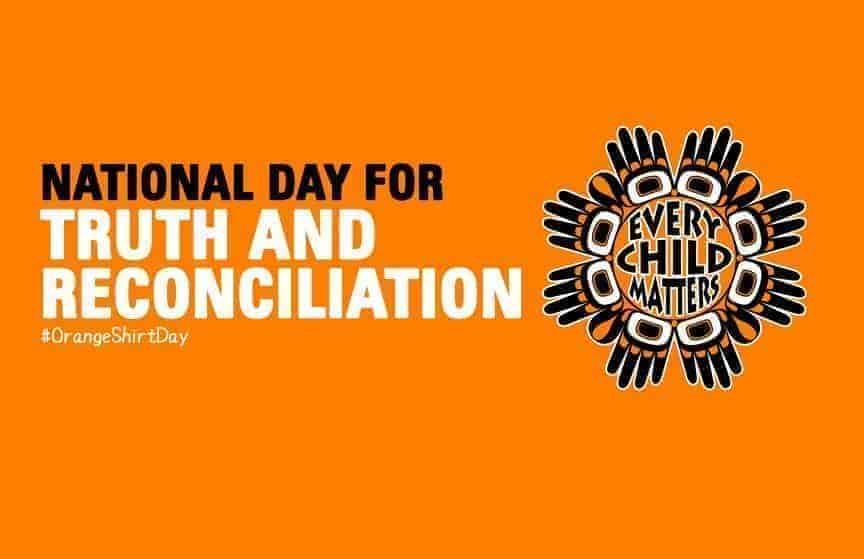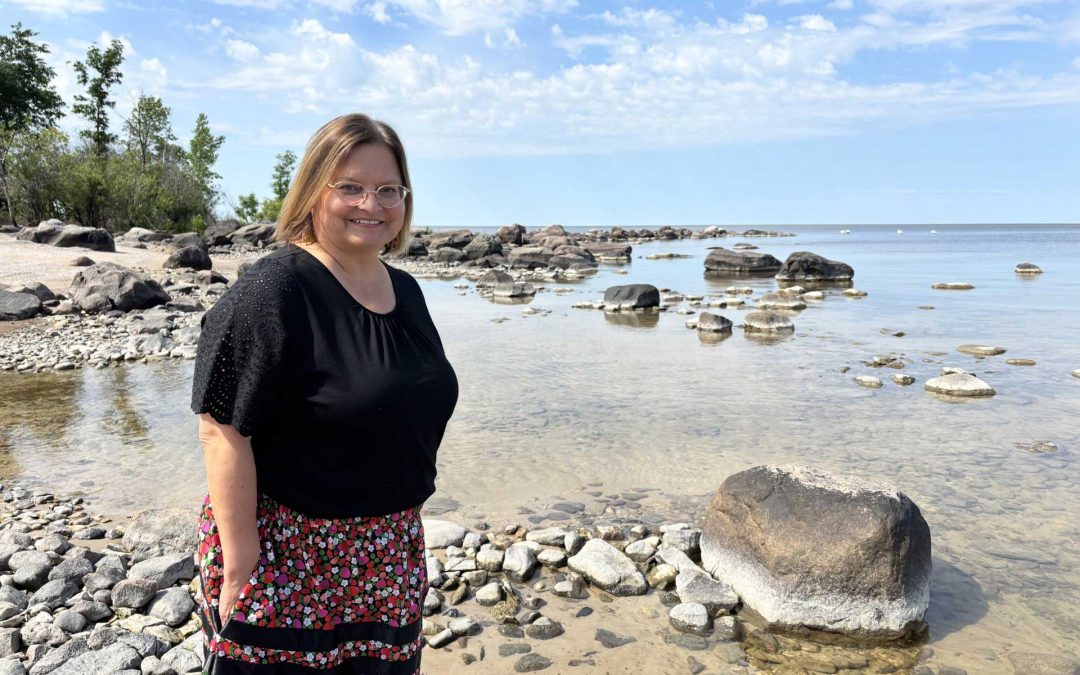Blog
Manitoba’s “C” on CCWESTT’s Gender Equality Report Card: Data, Direction, and Opportunity
Manitoba’s “C” on CCWESTT’s Gender Equality Report Card: Data, Direction, and Opportunity
The Canadian Coalition of Women in Engineering, Science, Trades and Technology (CCWESTT) has released its first-ever Gender Equality in SETT (Science, Engineering, Trades & Technology) Report Card. Manitoba received a C. A result that invites reflection, but more importantly, offers a roadmap for progress.
Beyond the grade: a tool for nation building
The Report Card evaluates how well provinces and territories are creating the policy and system conditions that enable women and gender-diverse people to thrive in SETT careers. It’s a diagnostic, not a judgment, highlighting where systems are supporting equity and where barriers remain.
At a time when governments are emphasizing nation-building investments, housing, infrastructure, clean energy, and innovation, this kind of data has never been more relevant. Building Canada’s future will require a resilient, inclusive workforce that draws on the full spectrum of talent. Gender equity in SETT isn’t just a social commitment; it’s an economic and nation-building imperative.
Manitoba’s results in brief
- Grade: C
- Strengths: A legislated gender-equality office (WAGE Manitoba), established public-sector pay-equity framework, and a strong foundation in affordable childcare policy.
- Gaps: Limited private-sector coverage for pay equity, no pay-transparency legislation, and persistent childcare access challenges for families working non-standard hours.
These findings mirror national patterns, where accountability, transparency, and accessibility consistently emerge as the key levers of progress. By benchmarking these across provinces, CCWESTT has created a shared evidence base to guide collaboration and policy alignment.
From evidence to action
Having contributed to CCWESTT’s Systemic Change research, I view this Report Card as a strategic tool, a bridge between data and decision-making. It offers credible, comparative insights that governments, industry, and educational institutions can use to align their workforce strategies with equity outcomes.
In the current climate of economic renewal and productivity investment, this is not a side conversation. Gender equality in SETT is a foundation for innovation, competitiveness, and sustainable growth. Data like this gives us a way to connect inclusion with impact, to ground our strategies in evidence and accountability.
Looking ahead
Manitoba’s “C” grade is not a verdict. It’s a reflection of both the work done and the opportunities ahead. The Report Card provides a framework to help policymakers, institutions, and employers identify where their efforts will have the greatest impact, and how collective action can strengthen outcomes for all.
I see this as a moment to turn insight into implementation. By using this data to guide policy, investment, and engagement, we can move from isolated initiatives to systemic change, and contribute to the nation-building agenda unfolding across Canada.
Explore the Report Card:
- Manitoba’s Report Card and full PDF
- National overview and Executive Summary
- Independent research reports (including my contribution)
This reflection is part of my ongoing work supporting equitable, evidence-informed systems change. Continue the conversation with me on LinkedIn, where colleagues across Canada are exploring how to turn this data into collective action.

Deepening My Knowing: A Personal Reflection on Family, Silence, and Reconciliation
This September, as I reflect on the National Day for Truth and Reconciliation, I find myself drawn not only to the work I do with organizations and communities, but also to my own family story. It is a story that holds both vivid memories and large silences, reminding me that reconciliation begins at home in the truths we are willing to uncover and face. And it is not unique to my family, as many Canadians share similar family dynamics, shaped by this nation’s history of colonization and the policies that attempted to erase Indigenous identity, culture and family ties.
The Spark: The Knowing
Earlier this year, I listened to The Knowing by Tanya Talaga. I was completely hooked. One passage stopped me in my tracks: Talaga described a baptism in Moose Factory, where her ancestors were given Anglican names alongside the Wesley family. Wesley is the name of my matrilineal ancestors.
Could these have been the same Wesley’s I descend from? Were they the grandparents of my great-grandmother? I don’t know. I think it is very likely as I know they were from Moose Factory and became a part of Treaty 9. This possibility opened a flood of questions. It left me wondering: what do I really know about the lives, choices, and struggles of those who came before me? And what has been kept from me?
I do know my great-grandmother through both memory and story. When I knew her, she was blind and living with multiple health challenges, and she carried a mischievous sense of humor. My cousins preyed on my shyness and would push me toward her rocking chair. She would grab me, hug me to her lap, and rock me. She would sing to me in her accented English, leaving smears of her face cream all over my eyeglasses. At the time, it was frustrating to be “stuck” with her while my cousins played outside. I realize now that those moments became the memories I carry as my truest inheritance of her.
What I Don’t Know and What I Now See
As I reflect now, I realize that my great-grandmother’s life was shaped by the structures of the Indian Act and the colonial systems that denied Indigenous women their rights and identities. I know she attended Indian Residential School and likely lost connection to her family while experiencing abuse and maltreatment. As a young woman, she married my great-grandfather, who was not Indigenous, and lost her Indigenous status as a result. From then on, her worth and her survival were linked to her attachment to a man.
But knowing that survival drove her choices also forces me to confront the harm. By all accounts, my great-grandfather was not a kind man. He was cruel, and his actions left deep scars. These truths are difficult to sit with, but they are part of my inheritance.
My Grandmother’s Gifts
While my grandmother kept much of her past silent, she gave me so much in the present. She made sure her grandchildren felt seen and loved. I remember sitting around her table, laughing and sharing stories over tea. She had a gift for service, to her family, at work, and in her community, and she modeled what it meant to give generously of yourself.
She was also a searcher, always seeking new ways of understanding the world and herself. Long before personal growth became a cultural trend, she was exploring religion and ideas. In her 60s, never having completed high school, she enrolled in a university literature class just to see what was possible. That kind of reinvention and openness was her quiet form of courage.
Her silence may have hidden truths I wish I knew, but her love, strength, and curiosity were undeniable. She taught us resilience not by talking about it, but by living it. She showed us how to keep going, how to hold each other up, and how to live fully in the face of hardship.
I carry both parts of her legacy: the unanswered questions, and the resilience she instilled. Together, they are part of my knowing.
The Impact of Silence and Privilege
As I reflect now, I see how my grandmother’s silence also helped create the privilege I grew up with. By shielding us from these stories, she set me up for a life where I did not carry the same visible weight of intergenerational trauma. Her coping strategy allowed me to move in the world differently, to have access, safety, and opportunity in ways that my ancestors did not.
That realization is unsettling, but it is also clarifying. My privilege is not an accident. It is tied directly to choices of survival and silence made by those before me. It is also tied to systems that harmed my ancestors and continue to harm many relatives today.
Carrying the Knowing Forward
So what do I do with this? For me, the challenge and the responsibility is to carry this knowing forward. To let it deepen my empathy, inform how I support community, and remind me of the resilience required to survive systems designed to erase. It means refusing to turn away from hard truths and instead integrating them into how I live and work.
Reconciliation, at its heart, is not only about policy or organizational change. It is about truth. And truth is often messy, painful, and incomplete. It lives in the stories we remember, the silences we inherit, and the questions we may never fully answer.
For me, reconciliation begins with this: holding the complexity of survival, harm, silence, and privilege, and choosing to carry that knowing with integrity.
This reflection is part of my ongoing journey of inclusion, innovation, and impact. It is deeply personal, but also deeply connected to the work I carry forward in community. May we each find the courage to face our truths, and the responsibility to act on what we come to know.

Reflections and Lessons from a Year of Mission-Driven Work
Youth Leadership: Creating Space with Y RISE
One of the most meaningful projects this year has been supporting the development of Y RISE, a program created to meet an urgent need: engaging boys and young men in efforts to prevent gender-based violence.
Too often, conversations about GBV overlook the role boys and young men can play in shaping safer, more respectful communities. Y RISE responds to this by offering a no-barrier, come-as-you-are space where participants can connect, talk honestly about relationships, respect, and identity, and build the skills they need to lead with empathy.
The sessions weave together conversation, activities, and reflection — all designed to break down harmful stereotypes and open up new ways of seeing themselves and others. At its heart, the program is about belonging: helping young people know they are valued, that their voices matter, and that they have the power to influence positive change.
For me, Y RISE is an example of innovation in prevention work — a reminder that when we create the right spaces for young people, they step into leadership in ways that ripple far beyond the room.
Walking the Path of Truth and Reconciliation: Y Winnipeg and Clan Mothers
Another profound highlight has been walking alongside Y Winnipeg on its reconciliation journey, and supporting the Clan Mothers Healing Village (CMHV), especially during the powerful Sunset Ceremony this past spring.
I’ve reaffirmed my belief that reconciliation must be lived as both a personal and professional practice — something that requires ongoing reflection and action. For organizations who are intent on real change, it cannot be an abstract concept or a checklist of activities. Instead, reconciliation requires creating space, opportunities, and safety for staff to learn, to reflect, and to grow.
This means understanding that the work is layered. Staff bring their own personal histories, experiences, and readiness to the journey. Leadership must not only model the way forward, but also create the structures and supports for staff to deepen their learning in meaningful, culturally safe ways.
At the Y, reconciliation has meant re-examining systems, creating opportunities for staff to learn directly from Elders and Knowledge Keepers, and embedding commitments into the organizational framework. At Clan Mothers, it has meant honoring ceremony, Indigenous ways of knowing, and the relationships that make community healing possible.
The lesson for me has been clear: reconciliation cannot be rushed. It is both deeply individual and fundamentally collective — and when done with care, it transforms not just organizations, but the people within them. This is what inclusion looks like when lived out in practice.
Building Community and Voice: ISSA and Muslim Youth Mental Health
This year also brought an unexpected but deeply meaningful opportunity: serving as emcee for the Islamic Social Services Association (ISSA)’s event on Muslim youth mental health.
When I was asked, my first thought was, “How did I end up here?” The answer, of course, lies in relationship. Over time, I’ve built trust and connection with ISSA, supporting their organizational growth and transitions. When the moment came to highlight an issue as urgent and important as youth mental health, it was an honor to step in, hold the microphone, and help create a space where young voices could be amplified.
Why does this matter? Because inclusion is not only about who sits at the table — it is about who feels safe and supported enough to speak. For many young Muslims, conversations about mental health can still be fraught with stigma. This event opened a door, and I was proud to play a small role in widening it.
Lessons and Looking Ahead
Looking back on these experiences, three themes stand out for me:
- Inclusion: Ensuring that diverse voices and lived experiences are not just invited but centered.
- Innovation: Being willing to adapt, evolve, and design new approaches that respond to community realities.
- Impact: Focusing on outcomes that create long-term change, whether in the lives of young people, within organizations, or across communities.
If this past year has taught me anything, it is that leadership in community means listening first, acting with integrity, and staying grounded in values. I am grateful for the lessons, the partnerships, and the trust that so many individuals and organizations have extended to me.
As I look ahead, I am excited to continue building with others who are committed to equity, reconciliation, and sustainable change. Together, we can continue to move beyond words and into action — creating ripples of impact that reach far beyond our immediate circles.
